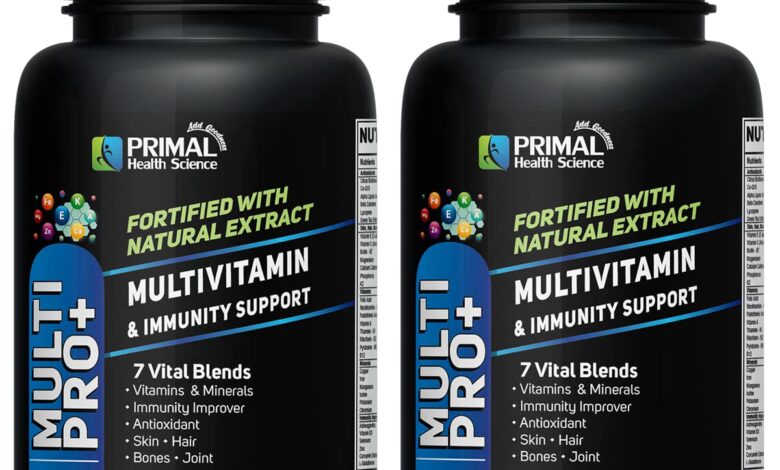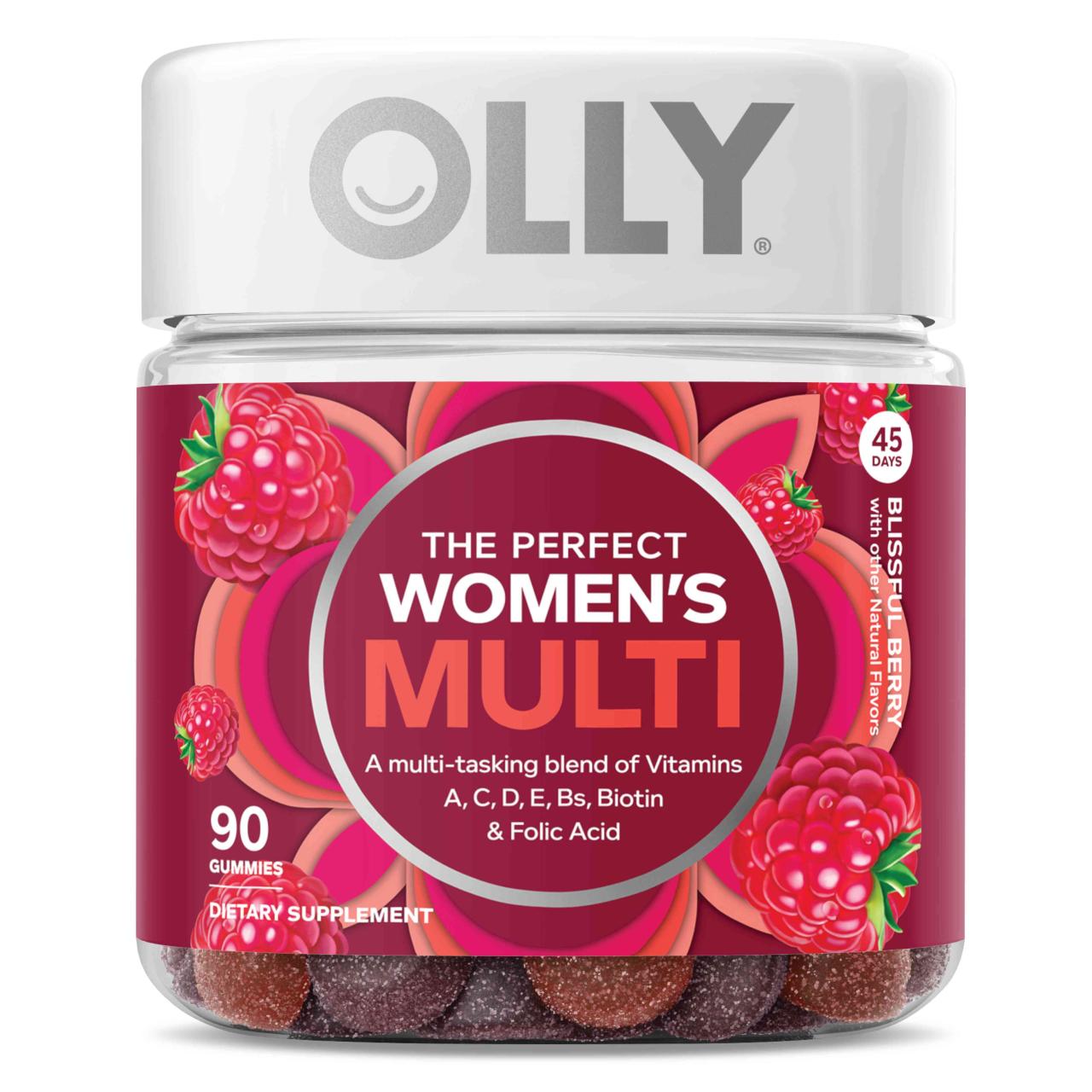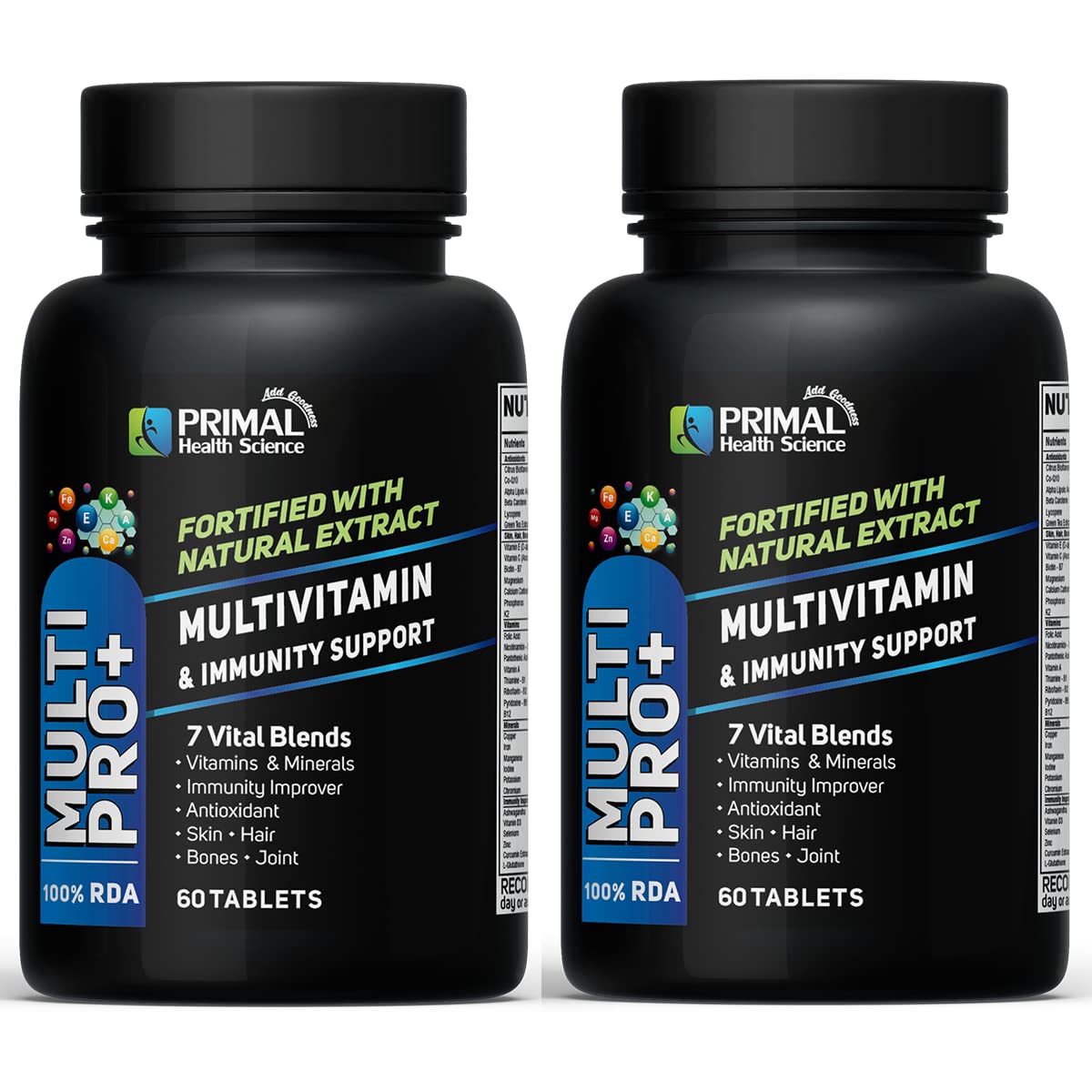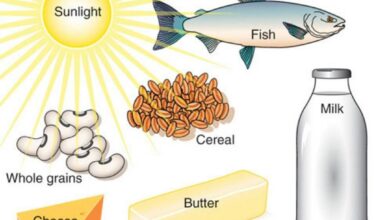
Best multivitamin for women is a crucial aspect of overall well-being, especially considering the varying nutritional needs throughout different life stages. From pre-teens to menopausal women, each phase presents unique nutritional requirements. This guide delves into the essential nutrients, explores different multivitamin types, and helps you navigate the complexities of choosing the right supplement for your specific needs.
We’ll cover everything from understanding your body’s nutritional needs to evaluating different brands, highlighting the benefits and drawbacks of multivitamins, and providing practical tips for choosing one that suits your lifestyle. We’ll also offer insights into proper usage and maintenance, along with illustrative examples of various products available in the market.
Overview of Women’s Nutritional Needs
Women’s nutritional needs vary significantly throughout their lives, reflecting hormonal changes, developmental stages, and life circumstances. Understanding these nuanced requirements is crucial for maintaining optimal health and well-being. Meeting these needs through a balanced diet and, when necessary, supplementation, can play a vital role in preventing deficiencies and supporting overall health.Nutritional needs are dynamic and adapt to different life phases, impacting health outcomes.
A diet tailored to individual needs, combined with strategic supplementation where required, can significantly enhance women’s health and well-being across the lifespan.
Nutritional Needs Across Life Stages
Women experience distinct nutritional needs at various life stages, influenced by hormonal changes, developmental milestones, and specific life events. Understanding these differences allows for personalized dietary and supplemental approaches.
- Pre-teens and Teenagers: During puberty, girls experience rapid growth and development, requiring increased intake of nutrients like calcium, iron, and vitamin D for bone health and overall growth. Adequate protein intake is also vital for muscle development and repair. Insufficient intake of these nutrients can lead to weakened bones, anemia, and impaired growth, affecting long-term health. For example, iron deficiency is common during adolescence, leading to fatigue and reduced physical performance.
A balanced diet rich in fruits, vegetables, lean proteins, and dairy products is paramount to meet these needs.
- Young Adults: Young adults often have increased energy needs due to physical activity and potential career demands. Maintaining adequate protein intake, healthy fats, and essential vitamins and minerals is important for overall health and well-being. Nutrient deficiencies can contribute to decreased energy levels, impaired immune function, and other health issues. For instance, inadequate vitamin B12 intake can lead to neurological problems.
Focus on a balanced diet including lean proteins, whole grains, fruits, and vegetables to support energy needs and prevent deficiencies.
- Pregnant Women: Pregnancy requires significant nutrient increases, particularly in folic acid, iron, calcium, and vitamin D. These nutrients are crucial for fetal development and maternal health. A lack of adequate folic acid intake during pregnancy is associated with neural tube defects in the developing fetus. Similarly, iron deficiency can lead to maternal anemia, affecting both the mother and the baby.
A diet rich in nutrient-dense foods and, often, supplementation, is crucial during pregnancy to support both maternal and fetal health.
- Menopausal Women: Menopause brings hormonal changes, increasing the risk of bone loss and cardiovascular disease. Adequate calcium, vitamin D, and protein intake are crucial for maintaining bone density and muscle mass. Increased fiber intake can help manage digestive health. For example, insufficient calcium intake can lead to osteoporosis, a condition characterized by weakened bones. A balanced diet emphasizing calcium-rich foods, vitamin D sources, and protein-rich foods is vital to support bone health and overall well-being during menopause.
Potential Nutritional Deficiencies in Women
Nutritional deficiencies are a concern for women across all life stages. They can stem from various factors, including dietary restrictions, inadequate food intake, or increased nutrient needs. Addressing potential deficiencies early on can prevent long-term health issues.
- Iron Deficiency: Common among women of childbearing age, iron deficiency can lead to anemia, fatigue, and decreased physical performance. Iron-rich foods like red meat, beans, and leafy green vegetables are important dietary sources.
- Calcium Deficiency: This deficiency is prevalent in women, especially during and after menopause. Calcium deficiency can lead to osteoporosis, a condition characterized by weakened bones. Dairy products, leafy green vegetables, and fortified foods are good sources of calcium.
- Vitamin D Deficiency: This deficiency is prevalent across various life stages, especially in individuals with limited sun exposure. Vitamin D deficiency can impact bone health and immune function. Sunlight, fatty fish, and fortified foods are important sources.
- Iodine Deficiency: Iodine deficiency can lead to hypothyroidism, affecting metabolism and thyroid function. Seafood, iodized salt, and certain plant foods are good sources.
Importance of Balanced Diet and Role of Multivitamins
A balanced diet rich in whole foods, fruits, vegetables, lean proteins, and healthy fats is essential for meeting the diverse nutritional needs of women at all life stages. However, certain nutrients may be challenging to obtain in sufficient amounts from diet alone. Multivitamins can be a valuable tool to support overall health, especially when dietary intake is inadequate.
| Life Stage | Potential Deficiencies | Recommended Intake Levels (Example Nutrients) |
|---|---|---|
| Pre-teens/Teens | Iron, calcium, vitamin D | Iron: 8-18 mg Calcium: 1,300 mg Vitamin D: 600 IU |
| Young Adults | Iron, vitamin B12, folate | Iron: 18 mg Vitamin B12: 2.4 mcg Folate: 400 mcg |
| Pregnant Women | Folate, iron, calcium, vitamin D | Folate: 600 mcg Iron: 27 mg Calcium: 1,000 mg Vitamin D: 600 IU |
| Menopausal Women | Calcium, vitamin D, protein | Calcium: 1,200 mg Vitamin D: 600-800 IU Protein: 46-56 g |
Components of a Good Multivitamin for Women
Choosing the right multivitamin can be a game-changer for women’s health. It’s crucial to understand the essential nutrients needed and how various formulations can support specific needs. A well-rounded multivitamin can fill nutritional gaps, potentially preventing deficiencies and promoting overall well-being.A good multivitamin for women should be carefully formulated to address the unique nutritional requirements of this demographic.
These requirements often differ from those of men due to hormonal fluctuations, reproductive health needs, and potential nutritional demands associated with pregnancy or breastfeeding.
Finding the perfect multivitamin for women can be tricky, but it’s just as important as having the right accessories! Choosing the right wallet is crucial for organization, and you know, a well-organized purse reflects a well-maintained inner self. That’s why checking out the latest trends in best wallets for women is a great way to start.
Ultimately, focusing on a good multivitamin will help you feel your best from the inside out, just like a stylish new wallet enhances your whole look.
Essential Vitamins and Minerals
Understanding the essential vitamins and minerals is key to selecting an effective multivitamin. A well-formulated multivitamin should include a balanced array of these nutrients, providing the body with the building blocks it needs for optimal function.
Iron
Iron is critical for women, particularly during menstruation and pregnancy. Iron deficiency can lead to anemia, resulting in fatigue, weakness, and other health problems. A good multivitamin will include iron, but the form and dosage should be considered carefully. Iron supplements can be hard on the stomach and can interact with other medications. A balanced diet rich in iron-rich foods is still important.
Recommended daily intake levels vary based on age and lifestyle.
Calcium
Calcium is vital for maintaining strong bones and teeth, particularly important for women as they age. Calcium plays a crucial role in muscle function and nerve transmission. Post-menopausal women are particularly susceptible to bone loss, so adequate calcium intake is essential.
Vitamin D
Vitamin D is important for calcium absorption, bone health, and immune function. Adequate vitamin D levels are often low in women, especially during winter months. Sunlight is a primary source, but supplementation may be necessary for optimal health. Vitamin D deficiency can contribute to several health issues, including weakened bones and weakened immunity.
B Vitamins
B vitamins play a critical role in energy production, nerve function, and cell metabolism. Women may experience fluctuations in B vitamin needs due to hormonal changes and lifestyle factors. B vitamins are often involved in the metabolism of energy and other critical bodily functions.
Recommended Daily Intake Levels
The recommended daily intake of essential vitamins and minerals varies based on age, lifestyle, and specific health conditions. Consulting with a healthcare professional is always recommended to determine the appropriate intake levels for individual needs. For instance, pregnant women may require higher levels of certain nutrients.
Types of Multivitamins for Women
Different types of multivitamins cater to various needs and preferences. These formulations vary in their ingredients, formulations, and target demographics. Some formulas may prioritize bone health, others may be tailored for women in their childbearing years, and still others may focus on supporting energy levels.
Table Comparing Multivitamin Types
| Multivitamin Type | Ingredients | Formulation | Target Demographics | Advantages | Disadvantages |
|---|---|---|---|---|---|
| Prenatal | Higher amounts of folic acid, iron, and other essential nutrients | Often in tablet or capsule form | Pregnant or breastfeeding women | Addresses specific needs during pregnancy | May not be suitable for women not pregnant or breastfeeding. |
| Bone Health | Higher amounts of calcium, vitamin D, and magnesium | Often in tablet or capsule form | Women concerned about bone health | Supports bone density and strength | May not include other essential nutrients. |
| General Wellness | Balanced array of vitamins and minerals | Various forms, including tablets, capsules, gummies | Women seeking general well-being | Addresses a wide range of nutritional needs | May not address specific concerns like bone health or pregnancy. |
Evaluating Multivitamin Brands for Women: Best Multivitamin For Women
Choosing the right multivitamin can be a daunting task, especially for women with unique nutritional needs. Understanding the differences between brands and formulations is crucial for maximizing the benefits and ensuring you’re getting the best possible support for your health. Different brands offer varying levels of quality, ingredients, and absorption, so a careful evaluation is essential.Evaluating multivitamin brands requires a comprehensive understanding of their formulations and quality control processes.
A thorough analysis of ingredients, dosages, and absorption factors is necessary to select a product that effectively meets individual needs. Factors like transparency and the reputation of the manufacturer also play a significant role in making an informed decision.
Formulations and Quality of Different Brands
Different multivitamin brands cater to various needs and preferences, often using different formulations to achieve optimal absorption and effectiveness. Understanding these differences can help you choose a brand that best suits your individual requirements. Some brands might prioritize specific vitamins and minerals, while others emphasize the bioavailability of nutrients through advanced delivery systems. Consider the specific needs of women, like the importance of iron, calcium, and vitamin D, when assessing brand formulations.
Key Factors in Choosing a Multivitamin
Several key factors should guide your selection process. Ingredients are paramount. Look for a comprehensive list of essential vitamins and minerals, including those critical for women’s health, like vitamin D, iron, and calcium. Dosage is also important. Ensure the dosage of each ingredient aligns with recommended daily allowances or the specific needs of your lifestyle and health conditions.
Finally, absorption is critical. Some brands utilize advanced delivery systems to improve nutrient absorption, which can significantly impact the effectiveness of the supplement.
Transparency and Quality Control
Transparency in the manufacturing process is vital. Look for brands that openly share information about their sourcing, manufacturing, and quality control procedures. Reputable brands typically provide detailed information about their ingredients, production methods, and third-party testing results. This transparency provides assurance of the quality and safety of the product. Thorough quality control measures throughout the production process ensure consistency and purity.
Reputable Multivitamin Brands
Several brands are recognized for their commitment to quality and effectiveness in the multivitamin market. Some examples include brands known for their rigorous testing, research-backed formulas, and commitment to ethical sourcing. These include brands with strong reputations for purity and efficacy.
Comparative Analysis of Multivitamin Brands
| Brand | Key Ingredients | Price (USD) | Customer Reviews (Average Rating) |
|---|---|---|---|
| Brand A | Vitamin D, Iron, Calcium, B Vitamins | $25 | 4.5 stars |
| Brand B | Vitamin C, E, Zinc, Magnesium | $35 | 4.2 stars |
| Brand C | Biotin, Folic Acid, Vitamin K, Omega-3s | $20 | 4.0 stars |
This table provides a basic comparison of three hypothetical brands. Real-world data would involve more brands and a wider range of ingredients, pricing, and customer reviews. Always conduct thorough research and read independent reviews before making a purchase.
Understanding Multivitamin Benefits and Drawbacks
Multivitamins are a popular choice for many women seeking to supplement their diets and support overall health. However, it’s crucial to understand the potential benefits, alongside the drawbacks and potential risks. This section will delve into the advantages and disadvantages of incorporating multivitamins into your routine, including potential interactions with other medications and supplements.A balanced diet is the cornerstone of good health, and multivitamins can be a helpful tool for filling nutritional gaps.
However, they are not a replacement for a healthy diet rich in fruits, vegetables, and whole grains. They can serve as a safety net, particularly when dietary restrictions or specific health conditions necessitate additional nutrients. Understanding the nuances of their use is vital for maximizing potential benefits and minimizing potential harm.
Potential Benefits of Multivitamins for Women’s Health
Multivitamins can play a crucial role in supporting women’s health by providing essential vitamins and minerals that might be lacking in their diet. For example, they can contribute to bone health, especially important during pregnancy and as women age. They can also aid in energy production, mood regulation, and cognitive function. Specific benefits depend on the individual’s nutritional needs and the components of the chosen multivitamin.
Potential Side Effects and Risks of Excessive Multivitamin Intake
Excessive intake of certain vitamins and minerals can lead to adverse effects. For instance, high doses of vitamin A can cause liver damage, while excessive iron intake can increase the risk of heart problems. The recommended daily allowances (RDAs) for vitamins and minerals should be followed to avoid these risks. It’s essential to consult a healthcare professional before significantly increasing your intake of any supplement, including multivitamins.
Overconsumption of certain nutrients can lead to toxicity.
Interactions Between Multivitamins and Other Medications or Supplements
Multivitamins can interact with certain medications and supplements, potentially altering their effectiveness or causing adverse reactions. For example, some vitamins can interfere with blood thinners or medications used to treat certain conditions. It’s vital to disclose all supplements and medications to your healthcare provider, including multivitamins, before starting any new regimen. This proactive approach ensures your treatment plan is optimized and avoids potential complications.
- Some vitamins can interfere with the absorption of certain medications, like antibiotics or antacids.
- Certain medications, like those used to treat high blood pressure or thyroid conditions, can impact vitamin absorption.
- Combining multivitamins with herbal supplements can lead to unpredictable interactions.
- Iron supplements may interact with certain medications, affecting their effectiveness.
- Calcium supplements can interact with some medications, potentially affecting their absorption.
Examples of How Multivitamins Can Support Women’s Overall Well-being
Multivitamins can support various aspects of women’s well-being. For example, a multivitamin containing adequate amounts of iron can support women with heavy menstrual cycles, preventing anemia. Similarly, a multivitamin rich in vitamin D can support bone health, especially important as women age. Furthermore, multivitamins can contribute to energy levels and cognitive function, particularly when dietary intake is inadequate.
It is important to consult a healthcare professional for personalized recommendations.
Practical Tips for Choosing a Multivitamin

Finding the right multivitamin can feel like navigating a maze of ingredients and marketing claims. But with a little knowledge and the right approach, you can confidently choose a supplement that supports your individual needs. This guide provides practical tips for making informed decisions.Choosing the right multivitamin involves careful consideration of your specific needs and lifestyle. Factors like dietary habits, activity levels, and underlying health conditions all play a role in determining which nutrients you might be lacking.
Assessing Multivitamin Labels
Understanding the information on a multivitamin label is crucial for evaluating its quality and suitability. Look beyond catchy marketing slogans and focus on the specific ingredients and their quantities. A good multivitamin should list clearly defined dosages of essential vitamins and minerals, and importantly, it should have transparent information about the source of these nutrients.
- Ingredient Clarity: Look for multivitamins that clearly state the source of the nutrients. For example, vitamin C from acerola cherry is a more bioavailable source than synthetic vitamin C. Avoid multivitamins that list only the generic name (e.g., Vitamin A) without specifying the form (e.g., retinol, beta-carotene). This helps you understand how your body might absorb the nutrients.
Finding the best multivitamin for women can feel like a quest, but seriously, it’s important! Speaking of important things, did you see Meghan Markle’s recent night out at a Broadway Gypsy show in NYC? Meghan Markle’s New York City Broadway Gypsy night out was all glam, but even the most glamorous ladies need their daily dose of vitamins for overall health and well-being.
So, back to the best multivitamin for women, finding one with the right balance of nutrients is key!
- Dosage Transparency: Verify the recommended daily allowance (RDA) for each nutrient and compare it to the dosage provided in the multivitamin. A good multivitamin should provide a dosage that is close to or meets the RDA. This is especially important for nutrients like vitamin D, which many people may not be getting enough of through their diet alone.
- Supplement Facts Panel: Pay attention to the “Supplement Facts” panel. This panel provides critical information on serving size, the amount of each nutrient per serving, and the total amount of each nutrient in the recommended daily dose. Crucially, this panel should include details about any potential allergens or inactive ingredients that may be present.
Consulting with a Healthcare Professional
Before incorporating any new supplement, including a multivitamin, into your routine, consulting with a healthcare professional is highly recommended. They can assess your individual health status, dietary intake, and any existing medical conditions to determine if a multivitamin is appropriate and what specific needs you may have.
- Personalized Recommendations: A healthcare professional can tailor a multivitamin recommendation to your individual needs, accounting for any specific health concerns, nutrient deficiencies, or dietary restrictions. For instance, a woman with iron deficiency might need a multivitamin that emphasizes iron-rich ingredients, while someone with digestive issues may require a gentler formula.
- Addressing Potential Interactions: Your doctor can assess any potential drug interactions or allergies that might arise from taking a multivitamin. This is particularly important if you are already taking prescription medications or have pre-existing health conditions.
- Evaluating Existing Health Conditions: If you have any underlying health conditions, such as thyroid issues, diabetes, or digestive problems, your doctor can provide guidance on which multivitamin might be best for you and if it’s appropriate at all.
Flowchart for Choosing a Multivitamin
A structured approach to selecting a multivitamin can streamline the process. This flowchart helps guide you through the decision-making steps.“`[Diagram of a flowchart]Start –> Assess your diet and lifestyle –> Identify potential nutrient deficiencies –> Consult with healthcare professional –> Evaluate multivitamin labels –> Select a multivitamin –> Monitor for improvements –> Re-evaluate as needed –> End“`This visual representation clearly Artikels the key steps involved in choosing a suitable multivitamin.
Situations Where a Multivitamin Might Not Be Necessary
There are situations where a multivitamin might not be necessary. A balanced diet rich in fruits, vegetables, whole grains, and lean proteins can often provide the necessary nutrients.
- Healthy Dietary Habits: If you maintain a varied and balanced diet, you might already be meeting your daily nutrient needs and thus not require a multivitamin. A diet rich in a wide variety of foods, particularly colorful fruits and vegetables, often provides the vitamins and minerals the body needs.
- Specific Dietary Needs: In cases of strict dietary restrictions or allergies, a healthcare professional may advise alternative strategies to address any potential nutrient gaps. They can recommend a personalized approach to dietary supplements and nutritional guidance.
Multivitamin Usage and Maintenance
Taking a multivitamin can be a valuable part of a healthy lifestyle, but its effectiveness depends heavily on consistent use and proper storage. This section will guide you through incorporating multivitamins into your daily routine for optimal results, ensuring you get the most out of your supplement.Understanding how to integrate a multivitamin into your daily life, and adhering to the recommended dosage and storage guidelines, maximizes its potential to support your overall well-being.
Incorporating Multivitamins into Your Daily Routine
A consistent routine for taking multivitamins is crucial for optimal absorption and effectiveness. Taking them at the same time each day, preferably with a meal, can help establish a routine and ensure consistent intake.
- Timing is Key: Taking multivitamins with a meal, especially a meal containing some fat, can improve absorption. This is because fat helps the body absorb fat-soluble vitamins more efficiently.
- Consistency is Crucial: Consistency in taking your multivitamin is paramount. Missing doses can diminish the benefits. Set a daily reminder or incorporate it into your existing routine for optimal results.
- Hydration is Important: Drinking enough water throughout the day is essential for overall health and also aids in the absorption of vitamins. Ensure you are drinking adequate amounts of water, especially if you are taking a multivitamin.
Importance of Consistent Intake and Recommended Dosage
Adhering to the recommended dosage is critical for safety and effectiveness. Exceeding the recommended dosage can lead to potential health issues. The label of your specific multivitamin will provide the recommended daily intake.
“Always consult with your healthcare provider before making any significant changes to your diet or supplement regimen.”
Finding the best multivitamin for women can be tricky, with so many options out there. But, looking at how Kendall Jenner styles herself both on and off the runway in kendall jenner off and on duty model style can offer some interesting insights. Perhaps a focus on balanced nutrients, like the ones in a good multivitamin, mirrors her holistic approach to health and beauty?
Ultimately, choosing the right multivitamin depends on individual needs, but it’s all about finding what works for you.
Proper Storage of Multivitamins
Proper storage is essential to maintain the potency of your multivitamins. Heat, light, and moisture can degrade the effectiveness of vitamins.
- Keep it Cool and Dark: Store multivitamins in a cool, dark, and dry place, such as a cabinet or a drawer away from direct sunlight.
- Protect from Moisture: Avoid storing them in humid areas or places where they could get wet.
- Keep Them Sealed: Always keep the bottle tightly sealed to prevent moisture or air from degrading the vitamins.
Examples of Incorporating Multivitamins into Daily Routine, Best multivitamin for women
Here are some examples of how you can integrate multivitamins into your daily schedule:
- Morning Routine: Take your multivitamin with breakfast to help fuel your day and start with the right nutrients.
- Snack Time: If you prefer, taking your multivitamin with a healthy snack, such as yogurt or fruit, can be a good option.
- Evening Routine: Taking it before bed can be a good way to ensure you’re getting your vitamins as part of your nighttime routine.
Weekly Plan for Incorporating Multivitamins
The following table Artikels a sample weekly plan for incorporating a multivitamin into your daily routine. Adjust timings to fit your specific schedule.
| Day | Meal Time | Multivitamin Intake |
|---|---|---|
| Monday | Breakfast (8:00 AM) | Take multivitamin with breakfast |
| Tuesday | Lunch (12:00 PM) | Take multivitamin with lunch |
| Wednesday | Breakfast (8:00 AM) | Take multivitamin with breakfast |
| Thursday | Dinner (7:00 PM) | Take multivitamin with dinner |
| Friday | Breakfast (8:00 AM) | Take multivitamin with breakfast |
| Saturday | Lunch (1:00 PM) | Take multivitamin with lunch |
| Sunday | Breakfast (9:00 AM) | Take multivitamin with breakfast |
Illustrative Examples of Multivitamins for Women

Choosing the right multivitamin can be a daunting task, especially for women with diverse needs. Understanding the different products available and their specific features is crucial for making an informed decision. This section presents several examples, highlighting key ingredients, dosages, and potential benefits and drawbacks, to aid in your selection process.Different multivitamin brands cater to specific needs and preferences.
Some are formulated for general health support, while others focus on particular areas like bone health, energy levels, or hormone balance. Comparing products, considering your personal requirements, and reading customer reviews are essential steps in selecting a suitable multivitamin.
Detailed Descriptions of Multivitamin Products
A variety of multivitamin products are available in the market, each with its own unique formulation. Understanding the specific features and ingredients of these products can help women make informed choices that align with their individual needs.
- “Femme Forte” by “NutriWell”: This multivitamin is specifically designed for women’s health. It contains a blend of essential vitamins and minerals, including a higher dosage of vitamin D3 and calcium, vital for bone health. Key ingredients include vitamin C for immune support, vitamin B12 for energy production, and various antioxidants. This product often includes probiotics for gut health, an increasingly important aspect of overall well-being.
The manufacturer claims to use a bioavailable form of each nutrient for optimal absorption. Potential benefits include improved bone density, enhanced immunity, and increased energy levels. Potential drawbacks could be an elevated price point compared to other, more basic multivitamins, or possible digestive issues for some individuals sensitive to certain ingredients.
- “Daily Essentials” by “VitaSource”: This product focuses on basic nutritional needs, with a balanced mix of vitamins and minerals at a more affordable price point. It includes a comprehensive range of vitamins and minerals, emphasizing daily requirements for general health support. Key ingredients include vitamin A, vitamin C, vitamin D, and a range of B vitamins. Potential benefits include improved overall well-being and a cost-effective approach to daily nutrition.
Potential drawbacks might be that it doesn’t target specific needs like bone health or energy levels as effectively as other products. It might not offer the same potency or specialized ingredients as more targeted formulations.
- “Pregnant & Postpartum” by “Mama’s Choice”: Designed specifically for women who are pregnant or postpartum, this multivitamin provides a tailored nutritional support system. Higher doses of key nutrients, such as folic acid, iron, and vitamin B12, are included to address the increased nutritional demands during these periods. This product often also contains omega-3 fatty acids, which are beneficial for both mother and child.
Potential benefits include support for fetal development, enhanced maternal health, and faster postpartum recovery. Potential drawbacks may include a higher price point and a more limited appeal compared to general-purpose multivitamins.
Comparative Descriptions of Products
Comparing different multivitamin products allows consumers to evaluate various features and select the one that best suits their individual needs.
| Product | Price (USD) | Key Features | Customer Reviews (Average Rating) | Potential Benefits | Potential Drawbacks |
|---|---|---|---|---|---|
| Femme Forte | $35-45 | Targeted for women’s health, higher doses of key nutrients, includes probiotics | 4.5 stars | Improved bone health, enhanced immunity, increased energy levels | Higher price, potential digestive issues |
| Daily Essentials | $20-30 | Balanced mix of vitamins and minerals, general health support | 4.0 stars | Improved overall well-being, cost-effective | Limited focus on specific needs, less potent ingredients |
| Pregnant & Postpartum | $40-50 | Tailored for pregnancy and postpartum, higher doses of folic acid, iron, and omega-3s | 4.7 stars | Support for fetal development, enhanced maternal health, faster postpartum recovery | Higher price, more limited appeal |
Key Ingredients and Dosages
Understanding the specific ingredients and dosages in a multivitamin is crucial for assessing its effectiveness. Each product varies significantly in the types and amounts of vitamins and minerals included.
“Always consult with a healthcare professional before starting any new supplement regimen, especially if you have underlying health conditions or are taking other medications.”
Ending Remarks
Choosing the best multivitamin for women involves careful consideration of individual needs and lifestyle. This guide provides a comprehensive overview, empowering you to make an informed decision. Remember, consulting a healthcare professional is always recommended for personalized advice. Ultimately, a balanced diet remains the cornerstone of good health, and multivitamins can be a valuable tool for supplementing those needs.


